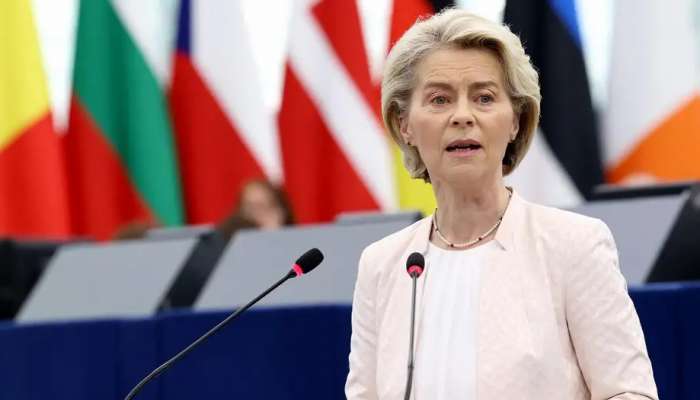
Brussels:European Commission President Ursula von der Leyen presented her list of 27 Commission members on Tuesday.
Speaking of the new administration's priorities, she said "last time, the topic of global warming was absolutely top."
"The dominance of the topic is still there," she added, noting recent floods and wildfires on the continent, "But this time, for example, the topic of security triggered by the Russian war in Ukraine, but also the topic of competitiveness has much more impact."
Who are the new commissioners?
The list included France's Stephane Sejourne as commissioner for industrial strategy, chosen after the abrupt resignation of Thierry Breton on Monday. It also included Italy's former Minister of European Affairs Raffaele Fitto as commissioner for cohesion and reforms as well as the Commission's vice president, despite claims that von der Leyen was uncomfortable with his position in Italy's far-right government.
Italian Prime Minister Giorgia Meloni said the appointment was "an important recognition that confirms the newfound central role of our nation in the EU."
Von der Leyen also selected Spanish former Ecology Minister Teresa Ribera as commissioner for competition, as well as giving her an executive vice president role overseeing the bloc's transition to carbon neutrality. Lithuania's Andrius Kubilius was given the newly created defense portfolio, as the Baltic countries are seen as crucial in facing potential threats from Russia.
Kaja Kallas, the former prime minister of Estonia, was given the high-profile foreign policy brief. The 47-year-old has long been a hawkish critic of Russiaand a staunch supporter of Ukraine.
Von der Leyen said the list was about 40% female, dashing her hopes for an even split.
Rocky path to second term
Von der Leyen's announcement came a day after France's Thierry Breton angrily resigned as EU internal market commissioner.
In a fiery letter, he said von der Leyen had asked leaders in Paris to withdraw his name from consideration for continuing in his post "for personal reasons" that she never directly discussed with him.
He said she asked in order to make a "political trade-off" that would have given France "an allegedly more influential portfolio" in the EU's executive branch.
Breton called her actions "further testimony to questionable governance" within the Commission.
Von der Leyen has reportedly been seeking a more gender-balanced set of commissioners. However, Paris has now nominated Stephane Sejourne, the outgoing French foreign minister, to take Breton's place on the European Commission.
After much political wrangling, von der Leyen was able to secure a second term in June once the Green party bloc agreed to vote for her. The naming of her new commissioners has also been delayed due to drawn-out negotiations over portfolios and policy.
Furthermore, despite asking member states to nominate one man and one woman to the Commission, most EU countries have only put forward a single nominee.
What is the European Commission?
The European Commission serves as the executive arm of the European Union. It consists of a president, currently von der Leyen, who is proposed by the leaders of member states and then elected by the European Parliament.
The president then creates the national government equivalent of a Cabinet, whose members are informally known as commissioners, with representatives from all EU member states. European Commission members are given portfolios similar to ministers or secretaries in national governments. Their appointment is subject to approval by the European Parliament.
Some 32,000 European civil servants support the Commission in its work.